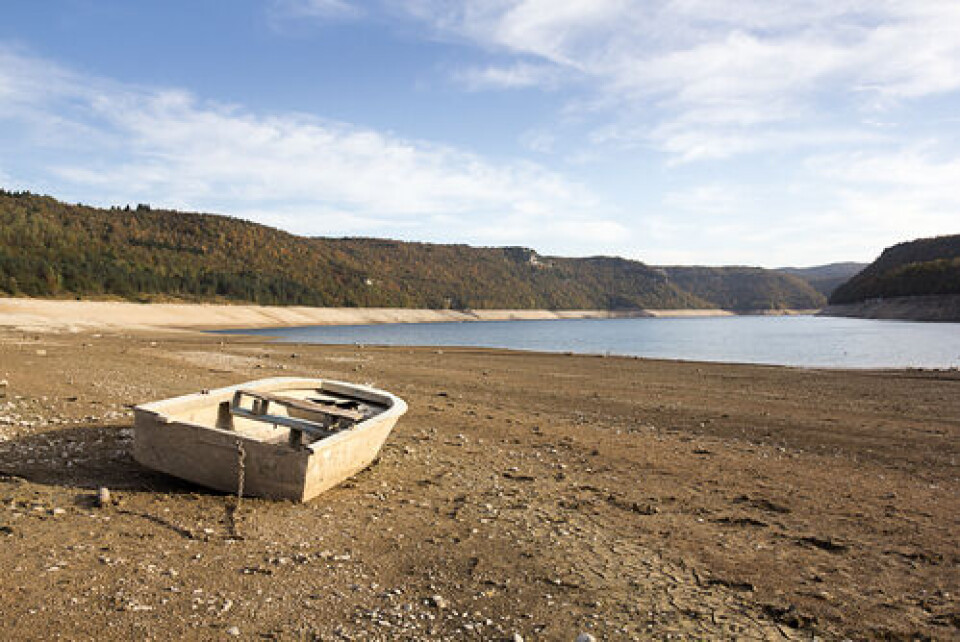-
Travellers risk extra costs under new Eurotunnel ticket rule
Some fare options are less flexible and less forgiving of lateness
-
May will be difficult month for train travel in France, warns minister
Two major train unions are threatening to strike and are ‘not willing to negotiate’, he says
-
Larousse dictionary adds 150 new French words - which ones do you know?
The new words come from trends in sport, nature, leisure, food, medicine, and the rest of the French-speaking world
Why the month of March will be decisive for droughts in France
A lack of rainfall over winter and mild temperatures mean next month’s weather will be crucial before the arrival of spring

The month of March is set to be ‘make or break’ for drought levels in France as the country continues to experience one of the driest winters on record.
Since January 21, an anticyclone weather system over the country has led to 26 consecutive days without rain (as of February 17) and a cumulative rainfall of less than 1mm nationwide, a record since 1989.
Temperatures have been relatively mild too in many places reaching levels more usually seen in March or April. This comes after the year of 2022, which was the hottest on record and the second-driest.
Last chance before spring
Experts are now saying that the final weeks before ‘real spring’ begins will have decisive consequences for the country’s water levels.
Bruno Coupry, director at water study group EAUCEA, told La Dépêche: “Water reserves are like a bank account. Normally you would save up during the winter so that you can have an easier summer.”
But spring and summer are set to be more difficult so far as water levels have not been refilled as one might expect over autumn and winter.
Mr Coupry said: “Last year, we were going into summer with a nearly-full bank account, but this year we’re looking at the season with an almost-empty account. We haven’t charged the underground batteries.”
Read also: Moves to improve compensation for drought damage in homes in France
Low rivers and lakes
The lack of rain is also showing up in metrics such as river height and power. For example, the Garonne, which flows through the city of Toulouse, is recording 52m3/s (metres cubed per second) whereas the average for this time of year is normally closer to 180m3/s.
“Rivers in France are, for the most part, seeing particularly weak flows,” said Mr Coupry. “This is unheard of and it is very worrying.”
Farming and climate researcher Serge Zaka told the HuffPost: "The soil moisture index for Perpignan is worthy of a semi-desert climate. In the middle of winter, the index for February is equivalent to that of... August. A record!" He added that "vegetation is suffering and dying on the ground".
Lakes and other water basins are also suffering.
Le Lac de Montbel en #ariege #pyrenees est toujours à un niveau extrêmement bas pour la saison ! Toujours pas ou peu de précipitations à venir ces prochains jours et dans 2 semaines c'est déjà la fin de l'hiver météorologique ☹️ Espérons un printemps pluvieux ! 📷@meteopyrenees pic.twitter.com/0pCFijAQWo
— Météo Pyrénées (@Meteo_Pyrenees) February 15, 2023
March is typically crucial for water reserves as it is when vegetation and plants begin to ‘wake up’ for spring after winter.
This has a “major influence” on the environment, said Mr Coupry, because “the leaves that begin to grow on branches retain a huge amount of rainwater, stopping it from refilling the water table”. “The first leaves mark the end of the possibility of refilling our reserves,” he said.
Plant problems
But the lack of water itself could actually hamper trees and plants from growing as normal in a vicious cycle.
Tree farmer in the Rhone, Alain Coquart, told RMC: “The problem is that we are coming out of a year of drought and today the banks are empty because there has been no rainfall. We are starting a new season without water.”
Winemaker Lionel Lavail, in the Pyrénées-Orientales, said: “The buds are going to start coming out, the vine will wake up but when it wakes up, it needs strength. For the moment, it won’t have the rain it needs.”
The dry soils have also caused early forest fires with 60 hectares burning up in Pyrénées-Orientales in early February. Drought conditions have also led some prefectures, such as Bouches-du-Rhône, to issue recent water use restrictions and drought alerts.
Read more: Drought in France: 2023 set to be ‘very dry year’ and it starts now
Read more: Water restrictions imposed in southeast France due to drought alert
Climate change is also a factor.
An earlier spring means that there is less time for the reserves to be topped up. However, Mr Coupry said that if the country gets some good rain next month, it could be just the boost the country needs before spring truly arrives.
Related articles
Drought damage, septic tank dispute: Five French property updates
























